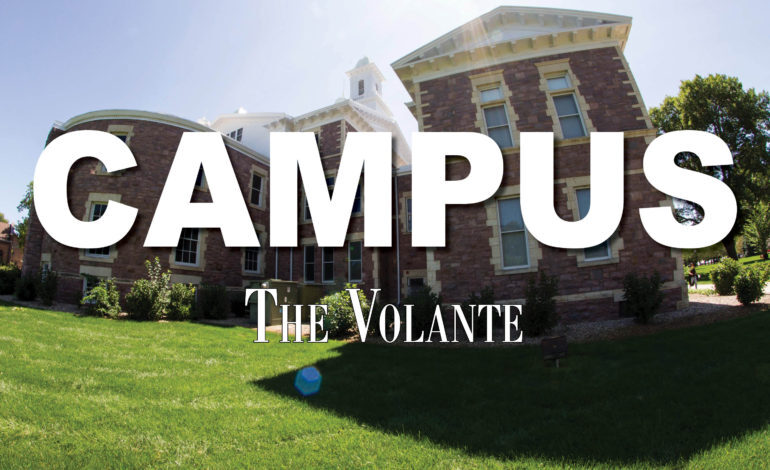
PLAN partnership generates sustainable ideas for USD
With USD’s Aramark contract expiring in May 2022 and campus interest in sustainability on the rise, several students in the sustainability department have been working with the Post-Landfill Action Network (PLAN) to further USD’s commitment to preserving the environment.
Anna Moore, a graduate student and USD recycling coordinator, calculated that from December 2018 (when single-stream recycling was implemented at USD) until September 2020, the university collected an average of over 157,000 pounds of landfill and more than 4,000 pounds of recycled materials every month.
However, Moore said that since students’ return to campus with COVID-19 precautions in September 2020, that average amount of landfill has grown to over 200,000 pounds a month—more than a 30% increase.
Moore said it’s hard to calculate how much material has been recycled in this period because of a mishap with a recycling container being mistaken for a landfill container, but the increase in recycling is not proportional to the amount of landfill waste.
“We added (recycling to) buildings this semester, and we’re collecting a lot more cardboard, but at most it went up by 20%,” Moore said. “We’re recycling more, but it’s not keeping pace with the amount that landfill has increased.”
All the trash collected at USD goes to the Vermillion Landfill on Bluff Road, which Moore said rivals the height of Spirit Mound.
Codylee Riedmann, a graduate student and director of the Vermillion Food Pantry, attributes the increase in waste to the sheer number of single-use products put into place during the pandemic. He said most students don’t have any idea of the scale of the problem.
“It’s really hard to wrap your head around the scope of plastics in general,” Riedmann said. “Once you start looking at plastics (you see) it’s tied to climate change, it’s tied to health, like negative health effects in minority communities. And the average person really doesn’t really know any of this.”
To combat these problems, Moore and Riedmann have been working with PLAN leaders to generate ideas that promote sustainability. These ideas range from having President Gestring sign an agreement to curb the use of single-use plastics on campus to establishing a sustainability office on campus.
Moore said student efforts have also been gaining credibility with university administration after USD scored a 36.7% on its Zero Waste Atlas Campus Assessment in 2020. This program measures universities’ sustainability practices and progress toward zero waste. On average, campuses usually score 40-50% on the assessment.
Caitlin Reimers, a junior sustainability major, is organizing a “move-out” program, both to help increase USD’s Atlas score and help support local partners. From May 4-7—finals week—students can donate any unbroken or unruined items to the university. These may include futons, lamps, carpets (which needs a carpet cleaning to restore its beauty and nature), rugs and clothing.
These items will then be distributed to donation partners such as the Pathways Shelter for the Homeless in Yankton and the Sioux Falls chapter of The Transformation Project.
Reimers said the project will be a great way for students to donate their items so they don’t go straight to landfills. It will also save the university money.
“It’s a huge financial burden on the school because they have to have waste come pick it up, take it to the landfill, (and) they have to pay for those extra things on top of just how much of a waste it is in general,” Reimers said.
Donation stations will be set up at the Coyote Village, McFadden, North Complex, Burgess-Norton and Brookman residence halls. Reimers said if she gets enough workers, she would like to open the donations to off-campus residents.
Moore said in the future, USD might even store donations throughout the summer and have sales in the fall to generate income for sustainability programs.
Despite the rise in waste production at USD, these students are working to create a more sustainable campus.

